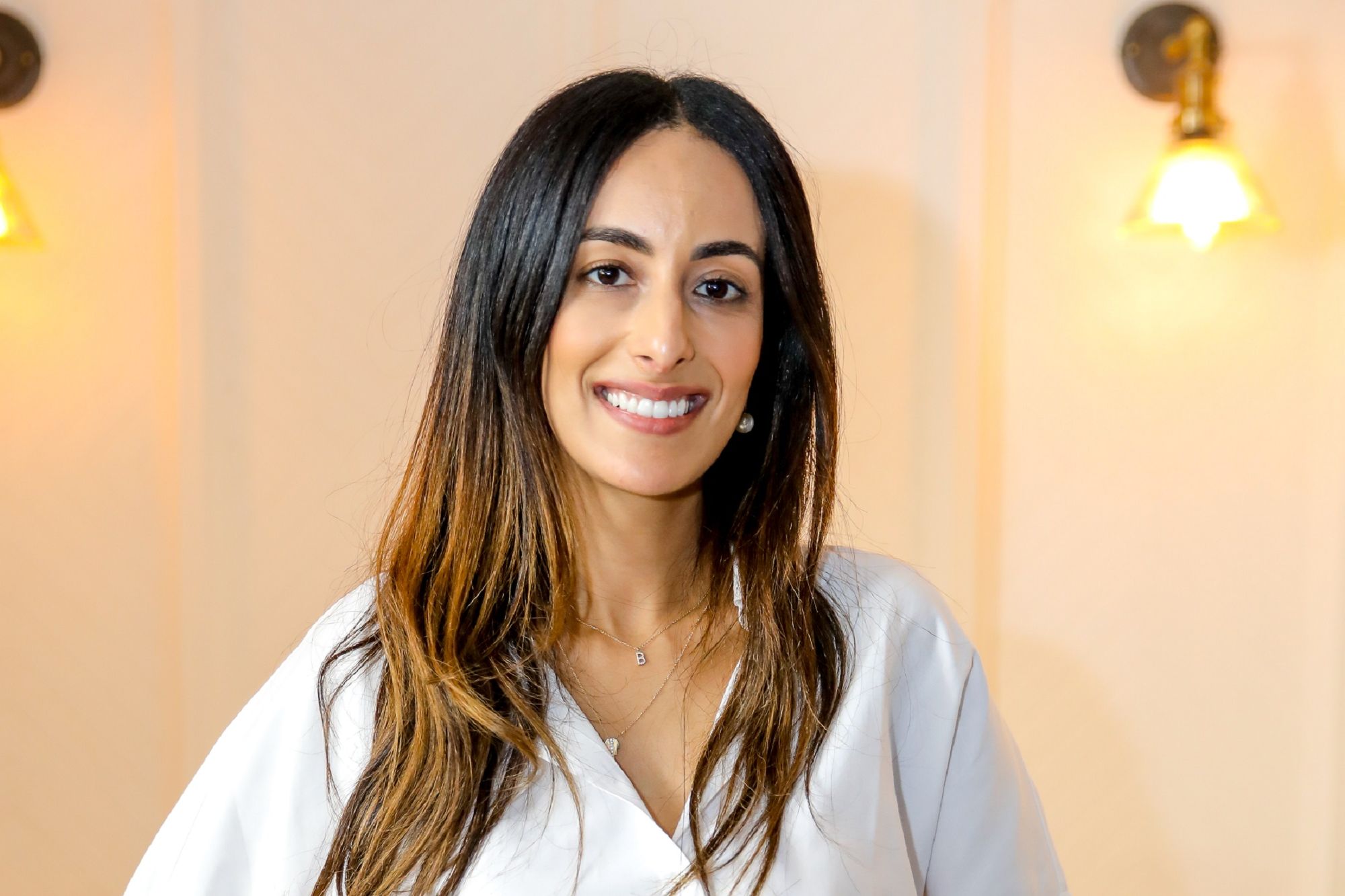Profits With Purpose: AUrate Co-Founder Bouchra Ezzahraoui AUrate co-founder Bouchra Ezzahraoui on building an ethically sourced fine jewelry brand.
By Tamara Pupic
You're reading Entrepreneur Middle East, an international franchise of Entrepreneur Media.

It was over a weekend brunch that Bouchra Ezzahraoui and Sophie Kahn discussed why modern fine jewelry was so inaccessible, intimidating, and uninspiring– and that's what led to them to establish AUrate, a New York-based ethically sourced fine jewelry brand. Its name is an amalgamation of "Au," the symbol of gold in the periodic table, and "rate" representing the rate of return on a purchase. "Today's customers want it all, a great product, a great story, and a socially responsible brand to interact with," Ezzahraoui says.
"They're fed up hearing about blood diamonds, sweat shops, harmful environmental practices, or just being uninformed about the supply chain when it's related to "fine jewelry.' Being transparent, inclusive, and ethically sourced are beyond necessary to build a sustainable business that's appealing to today's customer- a new customer who cares not only about what you do, but why you do it. This is core to what we care about as a brand, a company, but also as human beings at AUrate."
Launched in 2016, AUrate has been referred to as the Warby Parker of fine jewelry, with the Moroccan-born Ezzahraoui noting that it is the only direct-to-consumer (DTC) fine jewelry company with a successful omnichannel presence in the US. The brand has three stores in the US –in Brooklyn and Manhattan, New York, and Washington, DC– while its online revenue records a 400% year-onyear growth. The co-founders started the enterprise by bootstrapping the business, while still keeping their corporate jobs- Ezzahraoui worked as a derivatives trader at Goldman Sachs, while Kahn was a Director of Strategy at Marc Jacobs.
 Source: AUrate
Source: AUrate
"Being at Goldman and having a stable income was also very helpful in the early days, when AUrate was a "project,' and it helped finance a lot of trials in a comfortable way," Ezzahraoui says. "We were able to finance our operations, make a product, hire, and even make sales with a job on the side. I only decided to make the jump when AUrate showed proof of concept and established product-market fit. Starting my career as a trader in a risk-taking and male-dominated environment did also enable be to be comfortable with taking risk (isn't that what you do everyday building a company?), and it also taught me how to negotiate the tough way. I'm glad I did it this way."
While she did take a fair bit of time to move into entrepreneurship full-time, Ezzahraoui's career shift still raised a lot of eyebrows. "I was trading interest rates derivatives at Goldman Sachs with mathematics and financial engineering degrees under my belt, so you can only imagine everyone's reaction when I announced the move," she says. "However, I lived my whole life with a "don't take no for an answer' motto, and I always believed in meritocracy. It wasn't an easy pitch neither to my family who thought I lost my mind, nor to my colleagues at the time thinking I was leaving a very high paying and prestigious job to "sell jewelry.' I just decided to put my head down, and get the job done, ignoring the noise. I focused on my venture and my very close family and social circle that got to understand why I was doing what I was doing over time. Let's say that your hard work and subsequently success will speak for itself. It will take time, prioritization, sleepless nights, the no-shows to social events will be plenty, and all of this for the best of your baby, your business."
Once AUrate demonstrated proof of concept and validated a product market fit, the co-founders decided to dedicate to it full-time. They raised a seed round from Victress Capital, Arab Angel VC, a US family office, and a few angel investors. The spurt in AuRate's growth brought with it a new set of challenges for Ezzahraoui and her team. "In the early days, the biggest challenge was onboarding manufacturers who wouldn't work with us, unless we were from a family of jewelers or had some ties to the field," she remembers.
"Today's challenge is keeping the same close relationship we have with our early adopters, and taking it to the next level, while growing 4x year-onyear. You get past all of this by attracting the right talent, and learning how to retain it through a clear company vision and a great company culture." At the same time, AUrate's mission and vision have also enabled the brand's further growth.
 Source: AUrate
Source: AUrate
"AUrate is in the business of democratizing gold not only through an accessible customer experience, but also through education," Ezzahraoui explains. "We are customers ourselves, and we were fed up with the opaque practices in the space. This was one of the founding pillars of our business. We are made in New York, under the highest ethical standards throughout the whole supply chain. We can control this, and we stand by it, because we're involved in the manufacturing process, and ensure that we have every single certification of ethical sourcing for all our materials."
The AUrate team has grown from three to 35 people and will potentially double in size very soon in order to keep up with the rapid growth of the brand's online channels, especially in the data analytics. Other future projects, Ezzahraoui says, include the expansion of its store footprint in the US, forging new partnerships, as well as starting new projects for the Middle Eastern market.
"I think the MENA region is very wellversed in the jewelry space, but we're still missing strong contemporary brands that should be speaking to a wider demographic and offering a more accessible customer experience," she says. "I believe AUrate would fill this void in the region that's specifically a need for a brand offering a modern luxury contemporary aesthetic that's targeting specifically self-gifters. We want to be your go-to brand for your everyday 360 jewelry wardrobes."
Related: Attention To Detail: Roberto Coin On His Luxury Jewelry Brand
'TREP TALK
AUrate co-founder Bouchra Ezzahraoui's tips for entrepreneurs
1. Start up with what you have "It's ok to bootstrap the business in the beginning."
2. Keep an eye on the money you have/need "You need to have a clear vision of your cashflow at all times, especially in working capital-heavy businesses involving product and marketing expenses."
3. Manage the money you got "Spend smartly on what's going to make and/or push your product; the rest will naturally follow when you establish product-market fit."
4. Test before your commit to your startup full-time "It's ok to start your venture as a side hustle; there is no shame in proving that your idea is solving an actual problem in the market."
5. Just do it "Don't waste too much time making business plans, just go for it."
Related: Substance Over Style: Riccardo Giraudi, CEO, Giraudi Group












